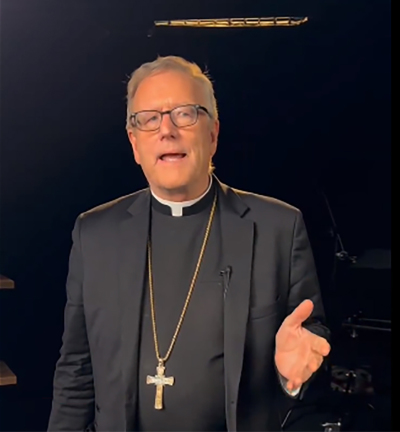Bishop Robert Barron Clarifies Catholic Teaching Amid Papal Remarks
Bishop Robert Barron of the Diocese of Winona-Rochester recently addressed the controversy stirred by remarks made by Pope Francis during a widely viewed television interview. The pontiff had expressed hope in the midst of worldly tragedies by emphasizing that the human heart is inherently good—a comment that some critics felt conflicted with traditional scriptural teachings.

During his interview, the pope noted that while tragedies are evident, acts of heroism and simple human hope abound. His observation that “people are fundamentally good” prompted debates across social media, with several voices arguing that his words missed the mark on core Gospel truths. Critics reminded audiences that only God is without fault and pointed to centuries-old doctrines asserting the pervasiveness of sin, even drawing parallels to the heresy of Pelagianism.
Contextualizing the Debate: Historical and Theological Perspectives
Bishop Barron contextualized the discussion by linking it to historical debates that date back to the Protestant Reformation. He recalled that reformers such as Martin Luther and John Calvin championed a “total depravity” view, one in which every aspect of human nature—including the will—is corrupted by sin. This perspective underscores the absolute need for a savior, as humans are seen as utterly incapable of achieving righteousness on their own.
In contrast, Catholic teaching posits that although human nature suffers from the impact of original and actual sin, the essential spiritual faculties remain intact. This view was articulated at the Council of Trent, which, while acknowledging humanity’s compromised state, maintained that God’s grace has a fundamental role to play in redeeming the human spirit. According to Bishop Barron, the pope’s remark that humans are “basically good” reflects this nuanced position.
Bishop Barron clarified that such a statement does not dismiss the need for salvation. Instead, it recognizes that even in our fallen state, human beings possess a resilient core upon which divine grace can work. In his view, Pope Francis’s comments underline a hopeful truth: while we continue in need of a savior, the inherent goodness observed in people offers a foundation for redemption.

Rockin’ the faith, one verse at a time!
Growing up, the Bible’s stories deeply impacted me. Now, with over 15 years of preaching experience, I blend timeless teachings with modern technology, making them relevant for today’s world.
Bible Hub Verse is my platform to share historical insights and thought-provoking articles, exploring both familiar and uncommon Christian topics. My passion is building a welcoming online space for everyone to learn, grow in their faith, and discover the Bible’s enduring message.
Join the journey!
God bless you.






